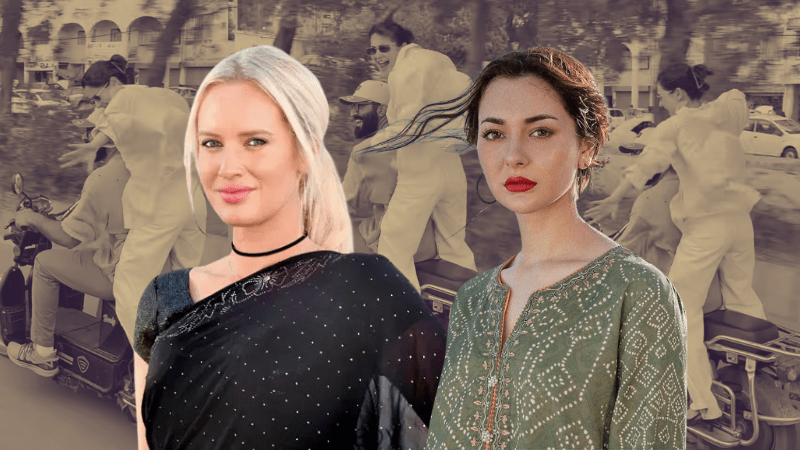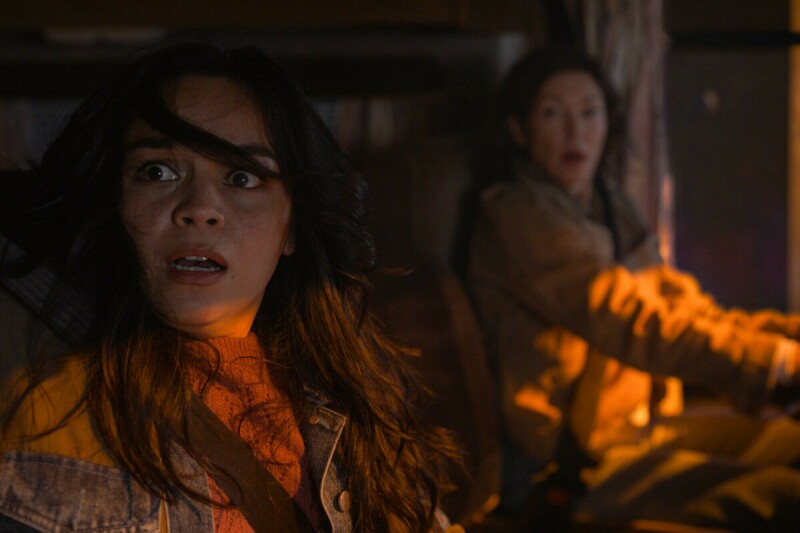Usman Riaz and The Glassworker — how hand-drawn dreams put Pakistan on the animation map
Usman Riaz, a name once synonymous with music is now one of the most well-known animators in Pakistan. I first came to know about Riaz when he performed at TED with guitarist Preston Reed nearly 12 years ago, and since then, I’ve been following his journey. One thing I knew from the start was that this guy was destined for bigger things — one of those change-makers who wouldn’t just push the envelope for himself but also pave the way for other visionary creators.
So, in July, when I saw him share his emotional journey at the premiere of The Glassworker with welled-up eyes, it moved me deeply, both as a fan and a fellow content creator. Thankfully, I got the chance to interview him, which gave me even more insight into his path and how he became a trailblazer in Pakistan’s animation industry with the country’s first-ever hand-drawn animated film.

Images: You’ve described The Glassworker as an anti-war film with a delicate message about life’s fragility. What specific moments in your own life or global events inspired this narrative?
Usman: The message about life’s fragility in The Glassworker draws inspiration from both personal experiences and global events. Growing up in a country like Pakistan, where conflict and tension are never far from the surface, I’ve always been aware of the impact of war on people’s lives. Additionally, the global climate, with its increasing violence and division, made me think deeply about how these forces disrupt the simple, beautiful moments of life. The film reflects my belief that even amidst chaos, there is a need to appreciate the beauty of life and the relationships that define us. At least that’s what I tried to showcase!
Images: What were some of the challenges you faced in developing the studio and the film, particularly in a country like Pakistan with limited resources for the creative industry?
Usman: Developing Pakistan’s first hand-drawn animated film was a monumental challenge. The creative industry here is still in its nascent stages, and resources are scarce. One of the biggest hurdles was building a team that believed in the vision as strongly as I did. Training animators in a country where such skills are rare was daunting, but we turned this challenge into an opportunity to innovate and create something truly original. Financial constraints also meant we had to be resourceful — I often relied on sheer passion and determination to push through.
Images: You’ve traveled and sought mentorship from Japanese animation house, Studio Ghibli. How did those interactions shape your approach to storytelling and animation, and what lessons did you take from Ghibli that you applied to The Glassworker?
Usman: I love Studio Ghibli, that is no secret. My interactions with Studio Ghibli in July 2015 were transformative. The meticulous attention to detail, the depth of emotion in their storytelling, and the respect for the audience’s intelligence were all lessons I absorbed. From Ghibli, I learned that animation is not just a medium for children’s entertainment but a powerful tool for conveying complex emotions and themes. I applied this understanding to The Glassworker by ensuring that every frame carried emotional weight and that the story resonated on multiple levels.
Images: Given the meticulous nature of hand-drawn animation, how did you maintain the motivation to push through this decade-long project? Were there moments where you thought of quitting, and how did you overcome those?
Usman: The decade-long journey of The Glassworker was filled with moments of doubt, but my love for hand-drawn animation kept me going. There were times when the enormity of the task seemed overwhelming, but the passion for the craft and the belief in the story’s message provided the motivation to continue. The support of my team and the knowledge that we were creating something groundbreaking for Pakistan helped me overcome the toughest moments. I am extremely grateful I got to work with a brilliant team in Pakistan and a brilliant team internationally to bring this project to life.

Images: You’ve spoken about your love for hand-drawn animation since childhood. What drew you to this medium over more modern techniques, such as CGI, and why do you think it’s still relevant in today’s film industry?
Usman: My fascination with hand-drawn animation began in childhood, captivated by the artistry and emotion it could convey. Unlike CGI, which is more prevalent today, hand-drawn animation has a warmth and intimacy that I believe is irreplaceable!
However, both mediums demand patience and attention to detail, but to me, the results in hand-drawn animation are something timeless and universally appealing. In an age of rapid technological change, I feel that this traditional form of animation still holds a unique place in storytelling.
Images: The Glassworker features a complex narrative, with themes of war, relationships, and artistry. How did you balance the story’s emotional depth while also appealing to a wider, possibly younger, audience?
Usman: Balancing the film’s emotional depth with its appeal to a wider audience was one of the project’s most significant challenges. I focused on creating a narrative that, while complex, was accessible and relatable to viewers of all ages. The themes of war, relationships, and artistry are interwoven in a way that allows each viewer to connect with the story on their own level, whether they’re drawn to the personal struggles of the characters or the broader commentary on the effects of conflict.

Images: What long-term impact do you hope The Glassworker will have on future animators and filmmakers in Pakistan?
Usman: The Glassworker is more than just a film; it’s a statement of what is possible in Pakistan. I hope it inspires future animators and filmmakers to push the boundaries of what can be achieved here. By showing that high-quality, hand-drawn animation is possible in Pakistan, I hope to open doors for others to explore this art form, encouraging the growth of a more robust and dynamic creative industry in the country. Let’s see what the future holds, only God knows what is in store, all we can do is try!
Images: You funded a portion of the project through crowdfunding. How did that experience shape your perspective on independent filmmaking and the level of support for creative ventures within and outside Pakistan?
Usman: Crowdfunding through Kickstarter was a crucial part of the journey. It reinforced my belief in the power of community and the support that exists for independent filmmaking. The experience showed me that there’s a strong desire among people, both within and outside Pakistan, to see original and heartfelt stories like The Glassworker brought to life. It also highlighted the importance of staying connected with the audience, who are not just viewers but active participants in the filmmaking process.

Images: With The Glassworker being a labour of love for you and your wife, how has working closely with family influenced the creative process? Did it strengthen the vision, or present unique challenges?
Usman: Working with my wife, Mariam Paracha (art director), and cousin, Khizer Riaz (producer), on this project has been both a blessing and a challenge! I am grateful they believed in my vision and I believe our shared ideas for The Glassworker strengthened the entire process, but it also brought unique challenges, particularly in balancing our personal and professional lives, especially for someone as obsessive as me! They were much better at it than I was.
This unique collaboration has ultimately made the project richer, as it reflects the combined passions and perspectives of three people deeply committed to their craft.
Images: You’ve mentioned that you hope this project puts Pakistan on the map for high-quality animation. What do you believe is necessary for Pakistan’s film and animation industry to thrive in the international arena, and how can creators like you influence that change?
Usman: For Pakistan’s film and animation industry to thrive internationally, there needs to be a greater investment in creative education and infrastructure. Additionally, there must be a cultural shift that recognises and values creative work as a legitimate and important contribution to society. As creators, it’s our responsibility to push boundaries, tell stories that resonate beyond our borders, and ensure that the world takes notice of the talent and potential within Pakistan. Like I said earlier, let’s see what the future holds, all we can do is try!
Our conversation left me with the realisation that The Glassworker is more than just a film — it’s a reflection of Riaz’s passion and belief in the power of hand-drawn stories. In a country where the creative industry often struggles, he’s demonstrated that with enough determination, even your wildest dreams can come true.
What stood out wasn’t just Riaz’s technical knowledge — it was the heart behind it all. He isn’t just making art — he’s creating a new path for Pakistan, one that rises above challenges and shows that beauty can still flourish in the hardest of times.















Comments